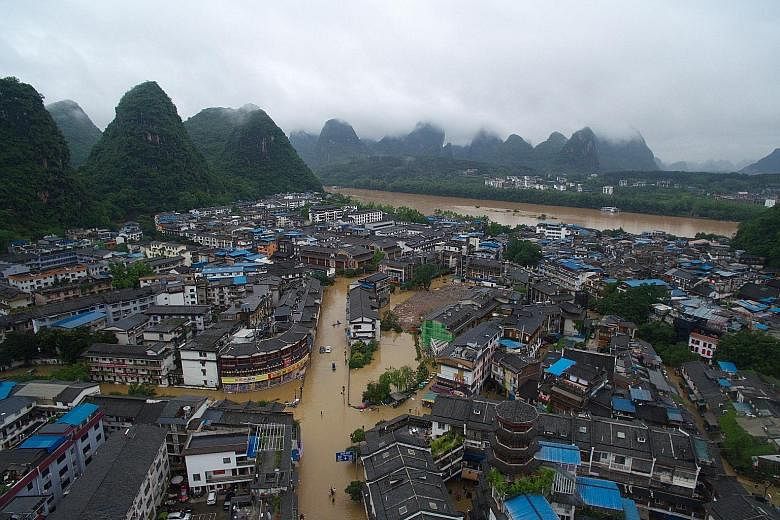BEIJING • Rescuers were struggling to find 34 construction workers buried by a landslide in eastern China yesterday, state media said.
Seven people were also injured when a torrent of mud struck a temporary shelter used by workers building a hydropower plant in Taining county, Fujian province, Xinhua news agency said.
The earth was dislodged by heavy rain early in the morning. No deaths were confirmed by the afternoon, but Xinhua said more than 400 rescuers were scouring the site and more were on their way with specialist equipment, reported Agence France-Presse.
Chinese President Xi Jinping has urged "maximum efforts" to rescue the workers, the report added.
Meanwhile, the National Meteorological Centre (NMC) yesterday renewed a blue alert for rainstorms, saying torrential rain will hit the southern provinces of Guizhou, Hunan, Jiangxi, Fujian and Zhejiang and autonomous region of Guangxi in the next two days.
About 250 villagers and tourists are said to be trapped in the flood-hit Yangshuo county in Guangxi region.
China has a four-tier colour-coded warning system for severe weather, with red being the most serious level, followed by orange, yellow and blue.
The NMC warned the public to stay away from mountainous areas and river valleys as floods, mudslides and rock flows are possible.
As China enters the annual rainy season, officials are on high alert amid forecasts that the Yangtze river will experience its worst flooding in decades.
In 1998, flooding of the Yangtze and its tributaries, as well as other rivers killed 4,150 people and affected millions more. The floods followed heavy rainfall attributed to a particularly strong El Nino effect, which occurs when unusually warm ocean waters disrupt weather patterns.
According to China's Ministry of Water Resources, the El Nino event, which began in September 2014, has been the longest and strongest since observation records began in 1951.
Mr Xu Yi, chief of the Datong monitoring station in Anhui province who has kept a close eye on the Yangtze river for more than 30 years, told Sixth Tone news website: "It doesn't look good this year. Major floods seem inevitable."

